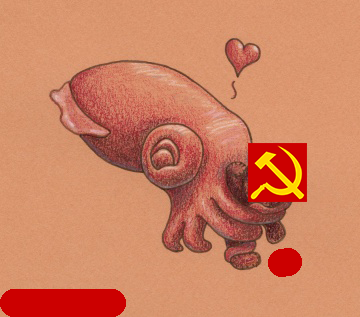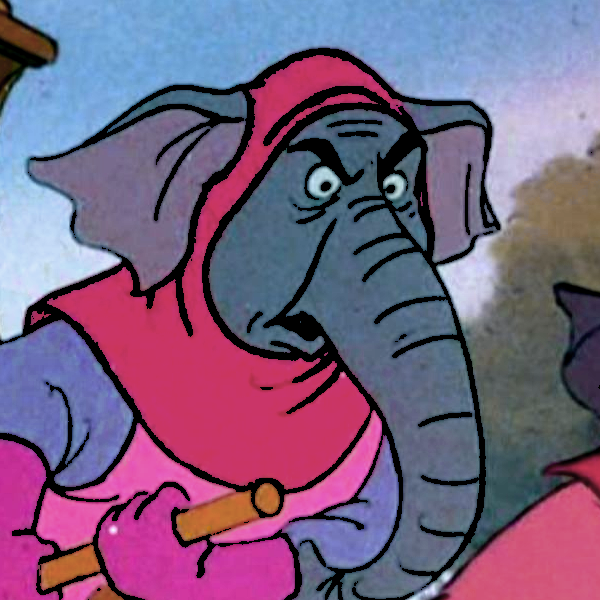Both times I managed to equip it right before getting ambushed by a difficult boss 
Don’t think I’ll bother with the fragile charms anymore. The busywork they punish you with for dying isn’t worth it.
I will be so happy when the “soulslike” genre goes out of style and we can just have saves again
Yyyyyep.
For real how did “Hey let’s waste the player’s time if they die” ever catch on. Starting in the 80s we spent like 3 decades moving away from that.
The major innovation of soulslikes is, counterintuitively, that they provide a safety net to let players fail forwards instead of just resetting. Just like the conceit of their enemy design is about creating consistent rhythms, clear telegraphs, and ways to actually avoid taking damage. For all that people meme about the genre being hard or unfair or whatever, its core is the exact opposite: giving the player enough QoL features and fair design that the rest of it can be dialed in tighter without it becoming just annoying the way jankier games are.
That’s why every game that’s actually improved on the formula has moved more in that direction, with more “consumables” that just refresh to full on death or rest instead of being farmable or limited.
Although Hollow Knight is also a metroidvania, which are usually kind of the opposite of that design philosophy, hinging a lot more on farming bullshit and resetting to savepoints. I understand Hollow Knight leaned more towards the soulslike QoL stuff, though? I’ve never played it though; I don’t like metroidvanias in general and every time I’ve seen someone playing Hollow Knight it has not looked particularly appealing.
Although Hollow Knight is also a metroidvania, which are usually kind of the opposite of that design philosophy, hinging a lot more on farming bullshit and resetting to savepoints. I understand Hollow Knight leaned more towards the soulslike QoL stuff, though? I’ve never played it though; I don’t like metroidvanias in general and every time I’ve seen someone playing Hollow Knight it has not looked particularly appealing.
I’ve always enjoyed Metroidvanias, and it’s definitely that aspect of it and not the Soulslike aspect that appeals to me. Barring a few nasty surprises, I’ve been able to maintain a reasonable power level for the challenges I’m faced with despite never really grinding for cash. Only reason I tried to use the Fragile Greed charm is because I’m the kind of guy who immediately wants to buy every powerup he sees.
Outside of the Fragile Charms, Hollow Knight’s system is actually quite forgiving. If you die, you don’t lose any progress, though you do lose whatever money you were carrying and your capacity for storing soul energy (used for healing and certain special attacks) is reduced. You get your stuff back by going to the spot where you died and killing your ghost, which doesn’t put up much of a fight. The “you have to kill your ghost” mechanic is slightly annoying, but it’s well within the bounds of what I’m willing to tolerate for an otherwise excellent game.
I forgive the “you have to kill your ghost” mechanic entirely because the ghost acts as an object you can spawn in almost every room that you can bounce off of to reach areas early
There’s a huge skip you can do using this near a vendor’s house. It’s a tough one that takes some really well-timed hits to pull off but it’s wild.
I found a YouTube link in your comment. Here are links to the same video on alternative frontends that protect your privacy:
That’s literally less forgiving than the usual dark souls mechanic fwiw
Failing forward can work in tabletop with a living dm. Failing foward in video games just means fucking up saves on purpose.
The core design is a checkpoint system with progress being saved (so if you open a chest or a shortcut or beat a boss and then die without reaching a checkpoint again, that persists anyways). Ideally that also goes along with refreshing consumables and there not being any truly finite consumables at all, but including a few finite side things to hide just how hard this design favors the player and holds their hand seems like a tradition that won’t go away. Dropping but being able to recover a non-bankable but infinite currency is also one of the fake risks it commonly uses to make it feel riskier too.
The whole thing is a big attempt at merging save/reload and respawn systems to make a model where you always gain something if you make progress, even if you fail too, while cultivating an illusion of risk or consequences even as the game picks you up, pats you on the back, and fills up your health charges to full so you can hop right back into things without needing to grind or buy more or anything.
Failing foward in video games just means fucking up saves on purpose.
What do you mean when you say this?
In order for a failing forward system to work as designed, the game has to not include a fully functional save system, otherwise players would just revert to a save before the failure that the game wants them to fail forward from.
See my other question, I guess
If soulslike fail forward were actually more forgiving than saving, soulslike games wouldn’t have to remove the save feature to force people to engage with it.
Not just “let’s waste the player’s time if they die” but “let’s make a game where the player is supposed to die a lot figuring things out then waste the player’s time when they die”
And then when you say this some Soulslike fan will jump in and say “No, you don’t get it, that’s the point” and probably imply you suck at video games

Literally this but replace “capitalism” with “Soulslikes”
Imply? Soulslike fans will say it to your face, then suggest that sucking at video games also makes you a bad person.
I remember once being told on this very site that my dislike of Dark Souls was illegitimate because I didn’t spend long enough (about half an hour) playing it.
I have never played an actual FromSoft Souls game, and I never will. Their effect on every other game around is universally bad.
Super Meat Boy solved the “brutally hard but not frustrating” problem like 20 years ago
I disagree that it wasn’t frustrating but I do appreciate that Meat Boy sticks to the philosophy of getting you back into the action as quickly as possible. The harder something is, the more important it is that the game doesn’t waste your time getting back in
For real how did “Hey let’s waste the player’s time if they die” ever catch on. Starting in the 80s
To answer seriously, a major part of the reason it started off that way was because video games were for a while mostly the purview of arcades and that sort of time-wasting death mechanic was the most obvious way to get kids to keep pumping in quarters. Make sure the game was hard enough that death was likely and frequent but if you wanted to keep going from where you died instead of starting over, just pop in some more money. Even for home consoles though, that sort of death mechanic was a way of padding out the game, making what was actually very little content seem longer because you have to keep redoing the same stuff.
As with the majority of shitty things in this world, when you trace them back far enough, you discover the profit motive (therefore capitalism) at their root.
I would say though that with the way games are played now in a very different set of circumstances compared to the 80s, the time punishment for player character death is used mostly just as a way to make the stakes feel high. I know I’m not saying anything that everyone here doesn’t already know, but if there are no negative consequences for dying, then there is much less incentive to avoid death and the tension the game relies on to feel meaningful would just be sucked out. The soulslike solution to making death consequential actually works pretty well imo in a lot of cases, but still can be very annoying (and sometimes detrimental to a game) depending on a lot of other factors, ranging from how well it fits with the rest of the game’s mechanics to individual player skill.
As with the majority of shitty things in this world, when you trace them back far enough, you discover the profit motive (therefore capitalism) at their root.
Well, that and technical limitations. On the console side of things, at least, password systems and then save batteries proliferated fairly quickly once they became viable.
if there are no negative consequences for dying, then there is much less incentive to avoid death and the tension the game relies on to feel meaningful would just be sucked out.
I never really bought this as an argument in favor of Soulslikes because a negative consequence for death was codified long before they emerged as a genre: you fail whatever challenge killed you and have to try again if you want to progress.
I never really bought this as an argument in favor of Soulslikes because a negative consequence for death was codified long before they emerged as a genre: you fail whatever challenge killed you and have to try again if you want to progress.
Well sure, that’s one of the more obvious consequences and it works great for some games (someone mentioned Super Meat Boy, and another example is Celeste though those aren’t soulslikes) and works great even in some scenarios within soulslike, such as losing a health pip when you hit spikes but start back immediately where you were before hitting the spikes to try again. But that doesn’t mean other penalties can’t further improve the kind of tension that a creator of a game wants to evoke or the kind of risk vs reward that a player is meant to consider. With games where longer term exploration is a big part of what is meant to drive the player, a mechanic that penalizes multiple or continued health losses with being set back a ways in exploration is often a good way to maintain that tension. It’s not some evil thing that developers are trying to do to make players mad, it’s a balance they’re trying to find to varying degrees of success. For example, I love metroidvanias, and I love it when they are difficult in terms of putting high demands on a player practicing a platforming sequence to get it right, because when as a player you do get it right, it feels really good, but in my opinion, as I said in a different thread, Silksong has gone too far in towards heavily punishing players by giving them too little health, making enemy damage too high, and payer-character damage too low, with the runbacks are usually too long. But I can still understand why it is that way and what the game’s creators were trying to do, I just think they missed the mark by overshooting too far on the penalties. It’s not an either/or kind of thing. The soulslike death mechanic works better in some games than in others, though I’d agree that it’s probably being overused at this point and often put in games where it’s a lot harder to justify its presence.
the kind of tension that a creator of a game wants to evoke
I might just not have the right psychology for this, because the only tension Soulslike mechanics have invoked in me is a kind of weary “Ugh, if I lose this fight I’m going to have to do so much shit before I can try again.” My brain just processes the whole thing as an unwelcome interruption of my attempt to beat the challenge in front of me. It doesn’t matter how fun I normally find the core gameplay loop, in that context it feels like having to fill out and submit paperwork to get the approval to retry the challenge I just failed.
payer-character
I know this was a typo, but I’m going to pretend it was a pun about how Silksong constantly makes you spend ingame money to do routine tasks.
My brain just processes the whole thing as an unwelcome interruption of my attempt to beat the challenge in front of me. It doesn’t matter how fun I normally find the core gameplay loop, in that context it feels like having to fill out and submit paperwork to get the approval to retry the challenge I just failed.
It’s pretty funny that you say this actually, because I’m exactly the same but with a different variation on it. I tend not to like bosses in general. They often feel like they ruin the flow of a game for me and just become this bottleneck that if I am not able to overcome it relatively quickly, just becomes a chore I have to get through in order to continue on doing what I want to do by exploring the world. Pretty much exactly as you describe above, where it’s a skill check that if I can’t pass, I am denied the approval of the game to continue playing and progressing. I understand why bosses are there, and there are some that I’ve come to enjoy fighting again after I’ve beaten them and they are no longer a barrier to me being able to able to play, but in most cases I just wish they weren’t there, or rather that they are optional instead of mandatory (as is sometimes the case). It’s not a pleasurable experience to butt your head against a wall repeatedly and told you aren’t allowed to go further because you weren’t good enough to beat this one specific thing. But I realize I’m in the minority there, that most people enjoy boss fights a lot more and even find them be the highlights of the game. So needless to say, I hear you on just plain not liking that death mechanic. I think it does just come down a lot to personal preference though, some things just click with some people and not others.
I know this was a typo, but I’m going to pretend it was a pun about how Silksong constantly makes you spend ingame money to do routine tasks.
lol, uh yeah… I uh meant to say it that way as a subtle criticism of Silksong’s highly flawed economy… really, it was intentional (*winkwink*)
@BeanisBrain@hexbear.net you called it lmao
What did I say that he “called”?
He said elsewhere in this thread
some Soulslike fan will jump in and say “No, you don’t get it, that’s the point” and probably imply you suck at video games
But I didn’t do that.
the time punishment for player character death is used mostly just as a way to make the stakes feel high. I know I’m not saying anything that everyone here doesn’t already know, but if there are no negative consequences for dying, then there is much less incentive to avoid death and the tension the game relies on to feel meaningful would just be sucked out. The soulslike solution to making death consequential actually works pretty well imo in a lot of cases, but still can be very annoying (and sometimes detrimental to a game)
“no you don’t get it that’s the point”
depending on a lot of other factors, ranging from how well it fits with the rest of the game’s mechanics to individual player skill.
“probably imply you suck at video games”
For real how did “Hey let’s waste the player’s time if they die” ever catch on. Starting in the 80s we spent like 3 decades moving away from that.
We solved that in the 90s through things called cheat codes. Or more specifically, extra lives and level select cheats. And a lot of xennial/millennial g*mers hate admitting this, but the reason why we were able to play and beat those hardTM games was because we first beat them with cheat codes and we slowly eased on the amount of cheats we needed until we practiced playing through the game enough that we could finally beat it without cheats. That’s more or less how I played through the Doom shareware.
G*mers still care about game difficulty in 2025 as if every game doesn’t become hardTM if you’re trying to speedrun it at WR pace. Any moderately popular game will have WR times that would take hundreds of hours for someone who’s not part of that speedrunning community to even crack at.
But of course, most g*mers don’t actually want hardTM games, but games that celebrate their mediocrity. Notice how “git gud” didn’t come from any speedrunning community but from a franchise community that inflates the difficulty of their games even though those games sell millions of copies.
This is misunderstanding how saving in Soulslikes work, because typically they let you keep everything except the currency and one other resource (humanity in DS1, the full vessel capacity in Hollow Knight, etc.). Nothing else is undone by death, so you can keep items, defeated non-respawning enemies*, and so on. In many respects, it’s much more generous than conventional saves.
*Yes, most enemies reset like in basically every game, but some just die and they stay dead even if you die right after, unlike in most games.
I understand how it works, I just hate it
So you want games to be less forgiving?
Dishonest wrong framing
Weren’t you and your friend just complaining about people calling you a bad person for feeling differently about a video game thing? Now you’re attacking my character for an honest opinion about how a design choice impacts difficulty?
You can just say that my characterization is “dishonest and wrong” you want, but you yourself admitted just a second ago that the DS system is in several respects more generous than those in most games. Normal saves mean much more frequent brick walls in terms of difficulty. If you’re already out of currency and whatever the other resource is, then what you get is all upside, and that’s even more true in a game like Silksong where doing the corpse run gets you full silk irrespective of what it was at when you died.
I have not attacked your character. I stated that your framing is dishonest and wrong.
I have also not “admitted” that a soulslike system is in any way more forgiving than saves.
I have not attacked your character. I stated that your framing is dishonest and wrong.
You’re accusing me of dishonesty
I have also not “admitted” that a soulslike system is in any way more forgiving than saves.
If that’s your perspective, you didn’t communicate it very clearly, because I said, emphasis mine:
This is misunderstanding how saving in Soulslikes work, because typically they let you keep everything except the currency and one other resource (humanity in DS1, the full vessel capacity in Hollow Knight, etc.). Nothing else is undone by death, so you can keep items, defeated non-respawning enemies*, and so on. In many respects, it’s much more generous than conventional saves.
And you simply replied:
I understand how it works, I just hate it
So it sure reads like you tacitly agreed with what I said and just dislike it anyway (which is fine). Perhaps that’s not what you meant to convey.
I dislike corpse running, especially in games like Hollow Knight which are supposed to encourage exploration, but otherwise I really like how the genre handles death. It prevents save scumming, which I am always very prone to, often making my experience worse.
I do think basically any game should have difficulty options, and in case of a soulslike an opt-in easy mode (that maybe prevents getting some achievements) is perfect. Nine Sols did it quite well with customizable sliders for received and dealt damage, except for calling it “Story Mode” like there is no reason you might want to slightly lower the difficulty other than just wanting to breeze through.
In general I wish the discussions on soulslike difficulty were more chill, there is merit to both sides.
I have never had an experience made worse by save scumming. I have frequently had an experience made better, or a game made tolerable at all, by save scumming.
The game I save scum the hardest is Rimworld, because it’s made to be a tragicomic story generator but I like to play it as a happy commune builder. Rimworld pretty much always has a way to fail forward, it’ll send more colonists whenever you’re running low, but it would be absolutely unplayable for me if the designer had thought that meant it didn’t need saves.

deleted by creator
spoiler on the fragile charms
You can encounter an NPC later that makes them indestructible, which is the only point when I started using them
This is the hubris they spoke of in the bible. I didnt bother with fragile charms except in very specific circumstances.
I just wanted to ease the grind for geo. Some of the late-game upgrades are so expensive

I mean the best grinding spot doesnt benefit from greed anyway
Just do trial of the conqueror over and over
I did everything in HK except pantheon and steel soul.
Never bothered with fragile charms. IMO the nice thing of HK and other soulsy games is how forgiving they are and how little death matters. Everything resets, no need to reload, nothing is permanent except progress.
Fragile charms and steelsoul rum counter to that, as evidenced by all the people who quit to menu (they want the cake and to eat it, because everything else works that way).
This is a really good point and I never thought of it that way. I think in some ways dark souls taught me that I like hard games, as long as they aren’t hard games that then punish me for not being good at hard games. Boss runbacks in some of the earlier titles notwithstanding…
It’s the kindness of impermanence. I think elden ring improved on it with the consumables (basically everything else was worse, god I fucking hate elden ring) but in general everything in DS can just be gotten infinitely. No need to worry about optimum leveling, or saving items, or save points or anything. You can always have a do over.
Currency doesn’t really matter either, since bosses are actually quite easy (how many RPGs let you beat bosses with literally 0 items, gear, levels, or upgrades?) and they usually drop enough souls that if you immediately spend them you’ll be reasonably levelled up for the start of the next area.
The difficulty is mostly smoke and mirrors.
They kinda got high on their own farts though, and the games increasingly started to become difficult and faster :(
I still find them really hard, you “can” beat them under those circumstances but that’s because it’s far more of a skill based game, it doesn’t make the average crpg experience harder than dark souls, it just means there’s some real freaks out there who’ve learned to play the game at an absurd level.
DS2, 3, elden ring defs are.
DS1 and DeS are pretty slow for action games, more about exposure to mechanics then mechanical skill imho.
Yaaaay another bug game fan!

Don’t worry, you’re supposed to die a lot.
…maybe that’s just me
Bug Souls is one of the most beautiful games I’ve ever played.
I mean theres a permadeath mode you can unlock, but like clearly optional
Leg Eater is a hear me out character
Lol, that also happen to me the first time i got it
I mostly use the strenght one
Yay, Hollow Knight! Hope you enjoy it. FWIW I didn’t use the fragile charms til very late game because I got sick of breaking them.
spoiler
Leg eater gives you a discount when you are stinky.













